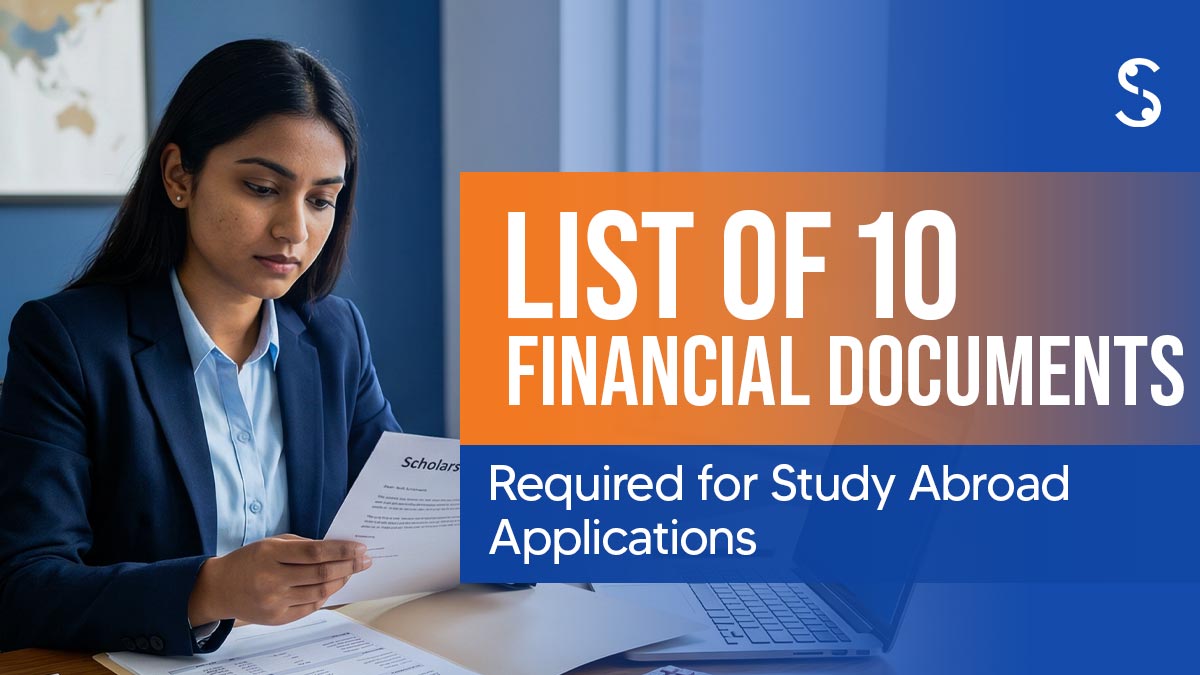
MBBS in Georgia 2026: Top Universities, Fees & Admission
Over the past few years, studying MBBS abroad has become a popular option, especially among Indian students, because getting a medical seat in India is so competitive. In 2025 alone, over 23 lakh students appeared for NEET-UG, but there are only around 1.18 lakh MBBS seats available across the country. This has pushed many students to look for better opportunities abroad, and Georgia is now one of the top choices.
So, why Georgia? The country offers affordable MBBS programs, with annual tuition fees usually between $4,000 to $8,000, and the cost of living is also budget-friendly, around ₹12,000–₹15,000 per month. What makes it even more appealing is that medical universities in Georgia are recognized by WHO and NMC, and many of them follow European education standards.
Students also have the option to prepare for FMGE/NEXT, USMLE, or PLAB exams if they wish to practice in India, the USA, or the UK.
Plus, MBBS courses in Georgia are taught entirely in English, and the admission process is simple, you don’t need to take any entrance exams other than NEET (for Indian students). The student visa process is also smooth and hassle-free.
Quick Facts About MBBS in Georgia
| Fact | Details |
| Time Zone | Georgia Standard Time (GMT +4) |
| Currency | Georgian Lari (₾); 1 GEL ≈ ₹31 (may vary) |
| Official Language | Georgian (MBBS taught in English) |
| Capital City | Tbilisi |
| Top 3 Medical Universities | • Tbilisi State Medical University (TSMU) • Batumi Shota Rustaveli State University (BSU) • David Tvildiani Medical University (DTMU) |
| Course Duration | 6 years (5 years academic + 1-year internship) |
| Avg. Tuition Fees (INR/year) | ₹4–6 lakhs per year |
| Cost of Living (Monthly) | ₹25,000–₹40,000 approx. |
| Intakes | March (Spring) & September (Fall) – Fall is most preferred |
| Eligibility Criteria | 50% in PCB (General), 40% (Reserved); NEET qualified |
| Recognitions | NMC, WHO, ECFMG, FAIMER, WFME approved |
| Student Visa Type | D3 Student Visa (followed by Temporary Residence Card) |
| Climate | Four seasons – cold winters, warm summers |
Why Choose Georgia for MBBS?
Studying MBBS in Georgia has become a smart and practical choice for many Indian and international students. Here’s why Georgia stands out:
1. Affordable Tuition Fees
MBBS programs in Georgia are much more affordable compared to private medical colleges in India or countries like the USA or UK. Tuition fees typically range between $4,000 to $8,000 per year, and living costs are also budget-friendly.
2. European Credit Transfer System (ECTS)
Medical programs in Georgia follow the European Credit Transfer System, making it easier for students to transfer to or pursue further studies in other European countries.
3. High FMGE (MCI) Pass Percentage
Many Georgian universities have a consistently high FMGE (Foreign Medical Graduate Examination) pass rate, which is crucial for Indian students planning to practice in India after completing their MBBS abroad.
4. No Language Barrier in Daily Life
Although Georgian is the native language, English is widely spoken in universities, hospitals, and cities, making it easier for students to adjust to life in Georgia.
5. No Donation or Capitation Fees
One of the biggest advantages is that there’s no donation or hidden costs involved. Admission is purely based on merit and academic performance.
6. Safe and Student-Friendly Country
Georgia is known for being safe, peaceful, and welcoming to international students. The cost of living is low, and Indian food and communities are widely available in major cities like Tbilisi and Batumi.
Eligibility Criteria for MBBS in Georgia
Getting into a Georgian medical university is simple and hassle-free. Here are the basic requirements:
- Age: Must be 17 years or older by 31st December of the admission year.
- Education: Completed 10+2 with Physics, Chemistry, and Biology from a recognised board. Minimum 50% marks in PCB (40% for SC/ST/OBC).
- NEET: NEET qualification is mandatory for Indian students (valid for 3 years).
- Language: No IELTS/TOEFL needed, but students should have basic English proficiency. Some universities may conduct an online interview.
- Documents: Must have a valid passport, educational certificates, and a medical fitness certificate.
Is NEET Compulsory to Study MBBS in Georgia for Indian Students?
Yes, the National Eligibility cum Entrance Test (NEET) is mandatory for Indian students who want to study MBBS abroad, including in Georgia. This is because, as per the National Medical Commission (NMC) guidelines:
“Any Indian citizen intending to obtain a primary medical qualification from any foreign institution must qualify NEET-UG in the same academic year.”
Without a valid NEET score:
- You can still get admission to a Georgian medical university,
- But you won’t be eligible to appear for the FMGE (Foreign Medical Graduate Examination) in India after your degree, which is essential for practicing medicine in India.
For Non-Indian Students:
NEET is not required for students from other countries unless their home country mandates a similar exam for foreign MBBS aspirants.
Note: NEET score is valid for 3 years for MBBS abroad. So, even if you’re taking a gap year, your NEET score can still be used for admission in Georgia.
Top 10 Best Medical Colleges in Georgia for Indian Students (2026)
Here’s a quick comparison of the top medical universities in 2025, including their fees, course duration, location, and recognitions that matter for your global medical career.
| College Name | Location | Duration | Annual Fees (₹) | Recognitions |
| Tbilisi State Medical University (TSMU) | Tbilisi | 6 years | ₹5.8–7.5 L per yr | WHO, NMC, ECFMG, WFME, FAIMER |
| Batumi Shota Rustaveli State University | Batumi | 6 years | ₹4.1–5.4 L per yr | WHO, NMC, EU Approved |
| David Tvildiani Medical University | Tbilisi | 6 years | ₹5.8–6.9 L per yr | WHO, NMC, GMC |
| New Vision University | Tbilisi | 6 years | ₹4.8–6.0 L per yr | NMC, WHO (implied) |
| Georgian National University (SEU) | Tbilisi | 6 years | ₹3.8–4.7 L per yr | NMC, WHO |
| Ilia State University | Tbilisi | 6 years | ₹5.0–5.3 L per yr | NMC, WHO (inferred) |
| Caucasus International University | Tbilisi | 6 years | ₹4.4–5.2 L per yr | NMC, WHO (implied) |
| East European University | Tbilisi | 6 years | ₹3.5–4.8 L per yr | NMC, WHO (implied) |
| Grigol Robakidze University | Tbilisi | 6 years | ₹3.0–4.5 L per yr | NMC, WHO (implied) |
| Akaki Tsereteli State University (ATSU) | Kutaisi | 6 years | ₹4.3–6.2 L per yr | NMC, WHO (implied) |
Note: Fees represent tuition only; annual living costs are additional. The standard MBBS duration in Georgia is 6 years, including a clinical internship year.
Upcoming Intakes For MBBS In Georgia
Here are the upcoming intakes for MBBS in Georgia for the academic year 2026
Intake Overview
| Intake Season | Intake Start | Typical Application Window | Notes |
|---|---|---|---|
| Fall 2025 | Sept–Oct 2025 | July – October 2025 | Main intake, widely available across universities |
| Spring 2026 | Feb–Mar 2026 | August – December 2025 | Limited seats, secondary intake |
MBBS admissions in Georgia typically follow a multiple intake system throughout the year. However, the most common intake months for MBBS programs in Georgia are usually September and February. These semesters coincide with the fall and spring semesters of the academic year in many countries.
Some universities might offer additional intake semesters in months like January or May. This provides even more options for students who may not be able to start their studies in September or February.
Admission Process for MBBS in Georgia
Here’s a step-by-step process to study MBBS in Georgia for Indian students:
1. Choose & Shortlist Universities
Select from NMC/WHO-recognized universities (e.g., TSMU, SEU, Batumi State). Consider factors like tuition fees, FMGE pass rate, clinical training, and student community.
2. Check Eligibility
- Age: Minimum 17 years old by Dec 31 of the admission year.
- Academic: 10+2 with PCB ≥ 50% (40% for reserved categories), and NEET-qualified for Indian students.
3. Apply Online
Fill out the university’s official application form, either directly or via a registered consultant.
Upload scanned copies of:
- 10th & 12th mark sheets
- NEET scorecard (for Indian students)
- Valid passport copy
- Passport-sized photos
- Medical fitness certificate
- Financial proof documents
4. Receive Admission Letter
Within 5–15 days, universities issue a provisional admission/invitation letter. Some may conduct a brief online interview to assess communication and motivation.
5. Pay Registration Fee
Confirm your seat by transferring the registration fee as specified in the offer letter.
6. Ministry Approval & Invitation Issued
Universities forward your documents for Ministry of Education approval and the National Center for Educational Quality Enhancement (NCEQE). Post-approval, you’ll receive an official invitation letter needed for visa processing.
7. Apply for Student Visa
Apply via the Georgian Embassy or VFS Global in your country. Required docs: Invitation letter, passport, financial proof, medical and police clearance, photos, visa form.
8. Travel & Begin MBBS
After visa approval:
- Pay first-year tuition if not done already
- Book your flight
- University arranges airport pickup, hostel accommodation, and orientation sessions
- Complete resident permit registration upon arrival
Key Timelines & Intakes: Most universities admit in March/April and September/October. Apply a few months in advance to allow smooth document verification, visa processing, and accommodation arrangement.
MBBS Fees in Georgia for Indian Students
Before you apply, it’s important to know the actual cost of studying and living in Georgia. Here’s a quick look at the MBBS fees and estimated living expenses for Indian students in 2026.
| Expense | Range (per year) |
| Tuition Fees | ₹3 – 6 L (varies by university) |
| Hostel Accommodation | ₹1 – 2 L |
| Food & Groceries | ₹1.2–1.8 L (₹10–15 k/month) |
| Transport & Utilities | ₹0.18–0.5 L |
| Miscellaneous (books, SIM, etc.) | ₹0.3–0.5 L |
| Health Insurance & Visa Fees | ₹0.3–0.5 L annually |
| Flight (one-way) | ₹0.3–0.6 L |
Compared to private medical colleges in India, which may charge ₹20–60 L for the entire course, Georgia offers a cost-effective MBBS option without sacrificing global recognition. Plus, no capitation or hidden fees make budgeting simpler and transparent.
Student Visa Process for Georgia (D3 Student Visa)
To study MBBS in Georgia, Indian students need a D3 student visa, which allows a 90-day stay initially. After reaching Georgia, you must apply for a Temporary Residence Card (TRC) within 45 days to continue your education legally.
Key documents include:
- Passport (valid 6+ months)
- Admission letter
- 10th & 12th mark sheets + NEET scorecard
- Bank statement (₹3–4 L funds)
- Medical & police clearance
- Accommodation proof
- Health insurance
- Flight ticket & visa form
Apply via Georgian Embassy or VFS in India or through the e‑visa portal. Visa fee typically ranges between ₹1,500–1,700; processing time approx. 10–45 days.
Ready to Begin Your MBBS Journey in Georgia?
If you’re dreaming of becoming a doctor, studying MBBS in Georgia can be a great option. It’s affordable, the degrees are globally accepted, and you get to study in English in a safe and friendly country. Many Indian students are already choosing Georgia for these reasons.
To make your journey easier, Shuraa Education is here to help you at every step, right from choosing the right college to handling applications, visas, and travel. We’ve helped many students start their MBBS abroad, and we’d love to help you too. Get in touch with Shuraa Education today.
Frequently Asked Questions
1. Is MBBS from Georgia valid in India?
Yes, MBBS from Georgia is valid in India as long as the university is recognised by the National Medical Commission (NMC). After graduation, students must clear the FMGE/NExT exam to practice in India.
2. What is the FMGE passing rate for students from Georgia?
The FMGE pass rate varies by university. Top universities like TSMU and DTMU have better success rates, but overall, the pass rate is around 10% to 25%, depending on preparation.
3. Are there scholarships for Indian students to study MBBS in Georgia?
While full scholarships are rare, some universities offer partial scholarships or fee waivers based on merit or performance in the first year.
4. Is Georgia safe for Indian students?
Yes, Georgia is considered very safe. It has a low crime rate, friendly locals, and a growing Indian student community. Cities like Tbilisi and Batumi are especially student-friendly.
5. Can students work part-time while studying MBBS in Georgia?
While part-time work options are limited during the MBBS course, some students do take up light work like freelancing or assisting in Indian restaurants. However, academics should remain the priority.
Let's Plan Your Study Abroad Journey!
Please leave your details and we will contact you shortly!
Categories
Trending Post
Latest Post

How to Study Abroad for Free or Cheap in 2026?
Many students believe that studying abroad is only for people with a lot of money. The high fees, expensive lifestyle, and foreign currencies can make it feel scary and impossible. Because of this, many students drop the idea without even checking what options are actually available. But the truth is – Studying abroad is much more […]
Read More
UCD Dublin Rankings, Fees, Courses & Reviews for Indian
For Indian students planning to study in Dublin, University College Dublin (UCD) stands out as a top choice for quality education and global exposure. As Ireland’s most globally connected university, UCD attracts students from around the world through its strong focus on research, innovation, and real-world impact. The campus culture is spirited and inclusive, making […]
Read More
List of 10 Financial Documents Required for Study Abroad Applications
Planning to study abroad is exciting, but before you pack your bags, there’s one critical step you can’t skip: proving your financial readiness. Universities and immigration authorities want assurance that you can comfortably cover tuition fees, living expenses, and other costs throughout your studies. That’s where the financial documents required for study abroad come in. These documents form the backbone of your […]
Read More
